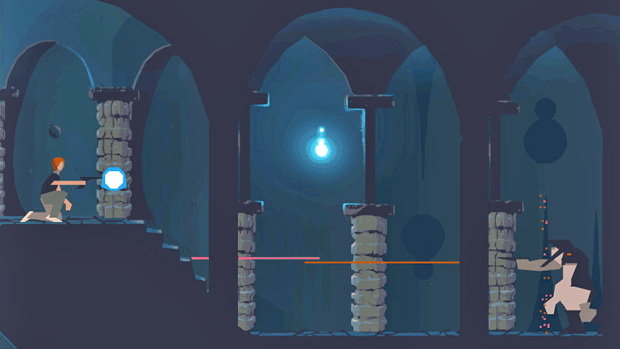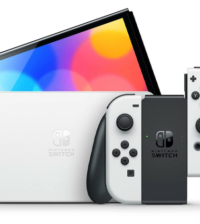Appeal of PS+ Free Games in September Driven by Destiny
Not much else probably needs to be said about Sony’s PlayStation Plus freebies for the month September beyond Destiny 2, but that’s not the only trick up their sleeve this time around. Along with such a heavy-hitting AAA title, they’re also offering a remastered edition of one of the absolute best third-person action RPG-ish games from the previous generation, something that’ll satisfy the lingering hunger of those who recently completed one of the PS4’s finest exclusives released to date. As has become the custom for the subscription service, the other legacy titles are footnotes and obligations, a cluster of legacy platform and puzzle experiences. PS4 owners should be very happy. Let’s explore ‘em further.

Bungie
PS4
Destiny 2
A lot of pressure fell on Bungie at the announcement of their newest creation, Destiny. How could they possibly follow up on the lore, gameplay formula, and popularity of Halo? Turns out, they weren’t entirely sure of how to do that either: the first game in the series received lukewarm reviews upon release, and it only really started to jibe with its playerbase after numerous updates and expansions. But once the shooter-RPG roots of Destiny took hold with its audience, it really started to appeal to ‘em, and that’s the lessons and foundation Bungie tries to take over to Destiny 2. As is so often the case with big releases like this, the sequel earned a broad range of both highly positive and damningly negative reviews: encouraging impressions center on its advancements over the original, the scope of both its story potential and gameplay setting, and how it focuses on better laying out what the game’s really about; the criticisms center on its threadbare content, sameness to the original, and other common dings like balance issues and loot disappointment. That just comes with the territory, though.
God of War III: Remastered Edition
One of my fondest gaming memories occurs in the very first scene in the original God of War: the moment when you’re given control of Kratos as he starts rapidly slinging his glowing chained blades on the surface of a rainy boat. It’s exhilarating, sinking its hooks into the player almost immediately as the antiheroic story of vengeance sprawls across several chapters, which made the final installment, God of War III, an essential PS3 system seller for console fence-sitters. As the franchise continues to be a driver for Sony with its recent Norse-inspired reboot, they’ve also offered the previous timeline’s final installment in a remastered version for the PS4. It’s a little awkward that first two games aren’t backwards compatible and playable on the new hardware, but luckily each of the games have been designed to be relatively self-contained, so that anyone could pick up and relish the precise, chaotic, absorbing action that flowed through the series. God of War III is a dazzling finale, but it’s also a brilliant experience on its own.

The Digital Lounge
PS3
Another World: 20th Anniversary Edition
Reading over the list of systems that Another World has transitioned to since its creation in ’91 is overwhelming, numbering over 20 (!) if you’re counting its 20th anniversary release. Even in its earliest blocky and pixelated version, it’s easy to see why the cinematic atmosphere strikes a strong-enough chord to be constantly re-released across platforms, which only gets enhanced – but not “changed” — by the polished visuals of the anniversary released. The consensus among both critics and players, however, is that as soon as someone starts navigating the game’s challenges and trying to get used to the frustrating controls, the whimsy and nostalgia surrounding Another World quickly evaporates.
Q.U.B.E.: Director’s Cut
Take the sensation of figuring out how to get from Point A to Point B in the Portal series, then picture it done in a similar fashion with color-block slide puzzles and physics-based manipulations of an environment. Essentially, that’s what Q.U.B.E. aims to accomplish. Originally created as a student project by the game’s developers, the game has been expanded into a narrative of sorts, in which the player deciphers chatter from two different comm channels explaining what they’re actually doing: either solving the ship’s puzzles to prevent the destruction of Earth, or doing so in an Aperture Laboratories-esque series of experiments in a vague location. Critics have praised the straightforward but effective narrative and the elegance of the puzzles, though some dissatisfaction can come in the simplicity of its puzzle-solving and the potential futility of where the narrative goes.

10tons
PS Vita
Sparkle 2
This is yet another of those touchscreen puzzle games designed to function well enough on consoles, but are mostly engineered for portable devices. It owes a tremendous amount to games like Zuma, Bejeweled, and Luxor in its mechanics, with a little modernized spit-polish for visual allure.
Foul Play
Ever feel like an audience member watching the events of a side-scrolling game take place? Foul Play takes this concept and runs with it, in which the characters controlled by the player are performers on a stage in the midst of a play gone wrong. Standard 2D beat-‘em-up controls are in place, but they’re tied to a somewhat unique mechanic, in which visible audience members under the stage need to be amused by what’s going on. The visual presentation, the novelty of entertaining the audience, and the general charm of Foul Play seem to entertain both critics and players in progressively less-enthusiastic stages, as the enjoyment dries up once they see the lack of variety in this production.












